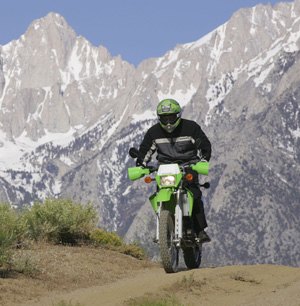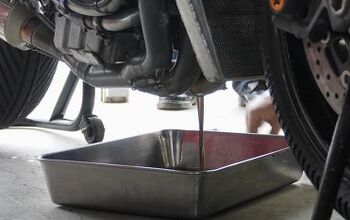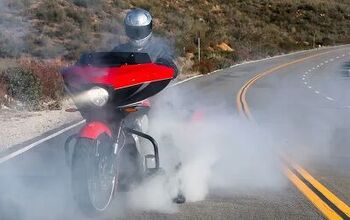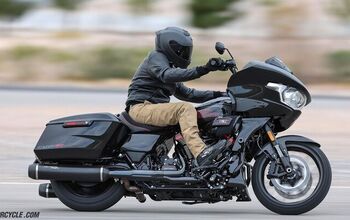Off-Road Riders Facing Two Fights
We’ll look at the trail funding first. According to the American Motorcyclist Association, the U.S. Senate will vote on a bill that would end the dedicated funding for the Recreational Trails Program (RTP), which is considered to be one of the most important and beneficial laws for off-highway vehicle (OHV) riders ever passed by Congress.
The RTP, which provides money to states to develop and maintain trails, would lose dedicated funding under provisions in a transportation funding authorization bill — S. 1813, “Moving Ahead for Progress in the 21st Century” (MAP-21) — which was approved by the Senate Environment and Public Works Committee by an 18-0 vote on Nov. 9. It’s unknown when the full Senate will vote on the measure.
Wayne Allard, AMA vice president for government relations, was shocked by the committee vote and noted that abolishing the RTP dedicated funding would effectively create a tax increase on OHV riders because the RTP funds would no longer be designated for a program that benefits motorized trail users.
“Motorcyclists pay the gasoline taxes that go to sustain the trails program,” says Wayne Allard, AMA vice president for government relations. “Many interests pull from the highway fund and do not pay into it! It becomes akin to a tax increase to the general fund.
“This program was created for trail users and is self-funded by the highway fuel taxes of trail users. Trail users see this program as a very essential part of their chosen form of recreation, and there’s no reason to redirect the funding for the program. The RTP pays for itself.
“I urge all concerned riders to contact their U.S. senators and ask them to support continued dedicated funding for the Recreational Trails Program. Money for the program comes from off-highway riders and should continue to be used to benefit off-highway riders.”
The second fight off-road motorcyclists face comes from a massive land-use designation proposal submitted to Congress on Nov. 10.
The proposal, submitted by the U.S. Interior Department, has been identified as the “Preliminary Report on BLM Lands Deserving Protection as National Conservation Areas, Wilderness or Other Conservation Designation.” The report identifies 18 backcountry areas in nine states that Interior Secretary Ken Salazar highlighted as deserving protection by Congress as national conservation areas or wilderness areas. Those states are California, Colorado, Idaho, Montana, Nevada, New Mexico, Oregon, Utah and Washington.
“The AMA and many other groups have battled Wilderness proposals in the past that didn’t meet the strict criteria for earning a Wilderness designation under federal law, and the U.S. Interior Department’s new plan may include a lot of acreage that simply isn’t appropriate for Wilderness designation,” says Allard.
A Wilderness designation is one of the strictest forms of public land management. Once Congress designates an area as Wilderness, nearly all forms of non-pedestrian recreation are prohibited.
Salazar indicated that he hopes this report is incorporated into an omnibus public lands bill similar to another public lands bill that passed Congress in 2009. The bill referenced by Salazar was the Omnibus Public Land Management Act of 2009. It was passed using rare parliamentary tactics that ultimately closed 2.1 million acres of public land.
“The actions taken by the administration, and the current Congress, could have a profound impact on the ability of responsible off-highway riders to enjoy their favorite outdoor view,” says Allard. “It’s important that all responsible riders stay informed about the Interior Department’s proposal and Wilderness bills in Congress and take action, when necessary, to help protect their right to ride.”
More by Lucas Cooney




























Comments
Join the conversation